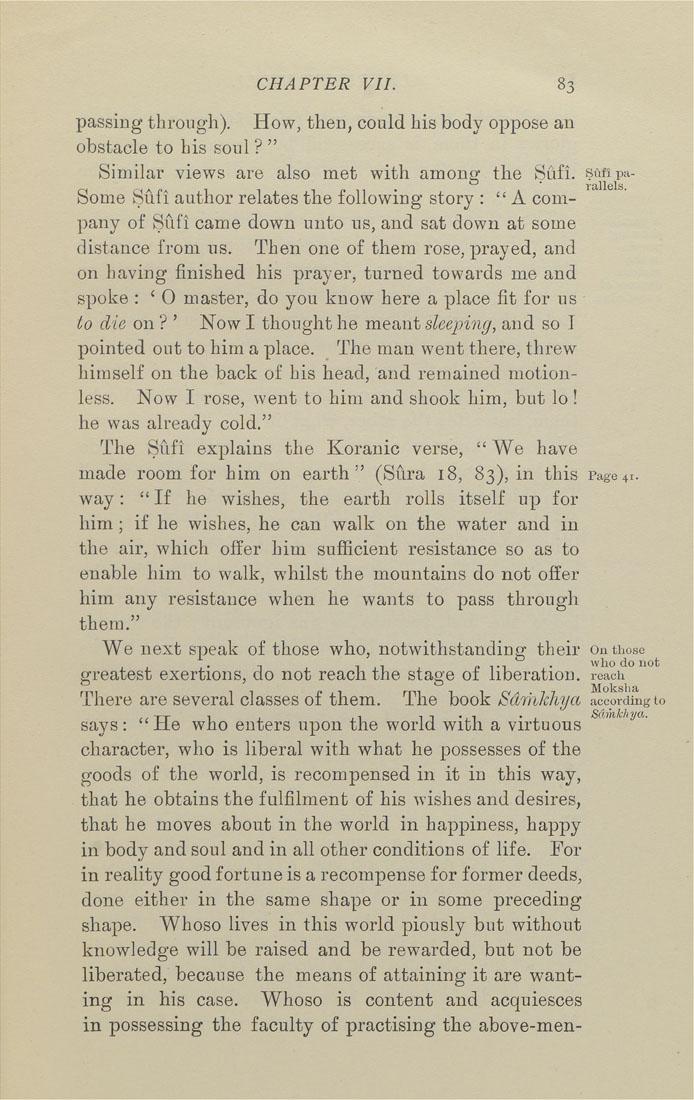Bīrūnī, Muḥammad ibn Aḥmad, Alberuni's India (v. 1)
(London : Kegan Paul, Trench, Trübner & Co., 1910.)
|
||
|
|
|
|
| Page 83 |

CHAPTER VII. 83 passing through). How, then, could his body oppose an obstacle to his soul ? " Similar views are also met with among the Siifi. sufipa- _. <: < A PA 1 1 p 11 • J ' rallels. Some Suii author relates the following story : "A com¬ pany of Sufi came down unto us, and sat down at some distance from us. P^hen one of them rose, prayed, and on having finished his prayer, turned towards me and spoke : ' 0 master, do you know here a place fit for us to die on ? ' Now I thought he meant sleeping, and so I pointed out to him a place. The man went there, threw himself on the back of his head, and remained motion¬ less. Now I rose, went to him and shook him, but lo ! he was already cold." The Sufi explains the Koranic verse, " We have made room for him on earth" (Sura 18, 83), in this Page 41. way: " If he wishes, the earth rolls itself up for him ; if he wishes, he can walk on the water and in the air, which offer him sufficient resistance so as to enable him to walk, whilst the mountains do not offer him any resistance when he wants to pass through them." We next speak of those who, notwithstanding their Ou those -, , , (• T-i • who do not greatest exertions, do not reach the stage of liberation, reach Mokslia There are several classes of them. The book Sdriikhya according to says: "He who enters upon the world with a virtuous character, who is liberal with what he possesses of the goods of the world, is recompensed in it in this way, that he obtains the fulfilment of his wishes and desires, that he moves about in the world in happiness, happy in body and soul and in all other conditions of life. For in reality good fortune is a recompense for former deeds, done either in the same shape or in some preceding shape. Whoso lives in this world piously but without knowledge will be raised and be rewarded, but not be liberated, because the means of attaining it are want¬ ing in his case. Whoso is content and acquiesces in possessing the faculty of practising the above-men- |
| Page 83 |







